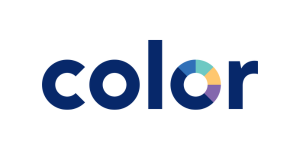
What is the top challenge or obstacle facing healthcare today?
Cancer management continues to be a top healthcare challenge. Employers spend more on healthcare than anything else aside from salaries and cancer treatment makes up the largest portion of those healthcare costs at 12% of medical costs. Cancer is the second leading cause of death in the United States, after heart disease and is increasing – the rates of cancer incidence for the most common cancers on the rise, particularly for those under 50. Compounding this issue, employers are seeing the greatest healthcare cost hikes in almost a decade, up to 8.5% for 2024 and rising costs don’t translate to more value – just higher prices for the same healthcare. With both cancer incidence and costs on the rise, employers will be looking for the impactful ways to reduce the physical and financial impacts of cancer by catching it early and ensuring treatment is well-managed.
What are some of the key trends you are seeing with respect to employer-sponsored healthcare?
Employers are increasingly realizing that different approaches beyond primary care and traditional insurance coverage are needed to holistically address the needs of their employees and their businesses. Employers are increasingly asking for a single comprehensive program that focuses equally on early detection as it does on cancer treatment support.
In a recent report, just 1 in 10 benefits leaders agreed insurance coverage alone is enough to provide key healthcare benefits for employees; only 1 in 4 agreed health plans are meeting employee needs for cancer screening, specifically. Primary care providers are also not a sufficient backstop for screening and prevention in cancer for employers. In the same report, 72% of benefits leaders agreed that primary care providers are not getting enough employees screened for cancer.
In your opinion, how can employers best engage their employees in their health and well-being, especially when a majority of the workforce is still remote?
At Color, we know that getting employees to engage is paramount to the success of any employer health care and well-being program. Through nearly 10 years of learned experience, we’ve developed a multi-faceted approach to engagement that drives results – seeing on average 5x higher utilization with Color versus average utilization in other wellness programs in the past for our preventive care programs.
Color’s approach is to start by engaging individuals where they live and work to drive top-of-funnel awareness and engagement. We know that one size does not fit all, so our team works to tailor communications in a way that resonates for the employees, building trust from the get-go. For example: for remote populations, we offer at-home distributed healthcare services.
What initiatives are you currently spearheading to improve health?
In partnership with the American Cancer Society (ACS), Color Health has a comprehensive cancer program for employers and labor unions to support their employee and member populations across all stages of the cancer journey. As a component of the program, Color is running a first-of-its-kind virtual cancer clinic, which combines:
What necessary collaborations/partnerships have you established within and/or outside of your organization in developing your initiatives?
Last year, Color Health launched a joint venture with the American Cancer Society for an accessible comprehensive cancer solution for the 150 million Americans who receive health care through either an employer or a union. The risk of dying from cancer has steadily declined over the last decade, but the fight against cancer is far from over. In fact, according to the American Cancer Society, new cancer cases in the U.S. in 2024 are expected to exceed two million, the first time it will pass that mark.
The partnership tackles a key issue: even Americans with health insurance find accessing cancer preventive services and navigating cancer post-diagnosis challenging. The partnership provides a comprehensive cancer program to take on clinical care and support while also lowering access barriers and thinking holistically about cancer — which is not just a medical issue, but something that is far more complex. The program is designed around the two most impactful ways to reduce the physical and financial impacts of cancer: catching it early and ensuring treatment is well-managed.
Your registration may be transferred to a member of your organization up to 24 hours prior to the first day of the event. All cancellations must be received in writing no later than 30 calendar days prior to the first day of the event to receive a refund less the $195.00 administrative charge. No refunds will be made after this date. However, the registration fee less the $195.00 administrative charge can be credited toward another comparable event (registration must be received within 6 months of the event from which you cancel). In case of conference cancellation, The Healthcare Innovation Company’s liability is limited to refund of conference registration fee only. Programs are subject to change, and we reserve the right to alter all programs without prior notice.